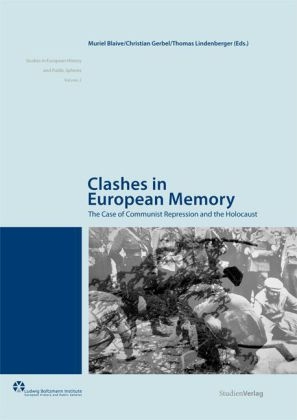Read more
In this volume the conflicted memories of Communist repression and the Holocaust in the Czech Republic, Poland, Hungary, Russia, Austria, Sweden, Switzerland, France, Germany, the former Yugoslavia and Bulgaria are discussed between the poles of politics of history and communicative memories. The results contribute to a deeper understanding of the memory clashes in the different national arenas. The comparative approach allows also for the identification of transnational memory patterns. Finally, the country specific case studies are completed by a theoretical section, in which historians and cultural scientists reflect on contradictory aspects concerning memory, historiography and learning in contemporary Europe.
About the author
Contributors:
Aleida Assmann (Fachbereich Literaturwissenschaft/Anglistik, Universität Konstanz), Natalija BaSic (Cluster of Excellence "Languages of Emotion", FU Berlin), Muriel Blaive (LBI-EHP, Wien), Claus Bryld (Department of Culture and Identity, Roskilde University), Gabi-Dolff-Bonekämper (Institut für Stadt- und Regionalplanung, Technische Universität Berlin), Maria Ferretti (Universitá della Tuscia, Vioterbo), Christian Gerbel (LBI-EHP, Wien), Georg Kreis (Europainstitut der Universität Basel), Pieter Lagrou (Département de Science Politique, Université de Bruxelles), Claudia Lenz (Center for Studies of Holocaust and Religious Minorities, Oslo), Thomas Lindenberger (LBI-EHP, Wien), Georges Mink (Institut des Sciences sociales du Politique -ISP/CNRS, Université Paris 10 - Nanterre), Berthold Molden (LBI-EHP, Wien), Oliver Rathkolb (Institut für Zeitgeschichte, Universität Wien), Henry Rousso (Institut d'Histoire du Temps Présent, CNRS, Paris), Martin Sabrow (Zentrum für Zeithistorische Forschung Potsdam), Natan Sznaider (Department of Behavioral Science, The Academic College of Tel Aviv), Stefan Troebst (Institut für Slavistik, Universität Leipzig), Harald Welzer (Interdisciplinary Memory Research, KWI Essen).

